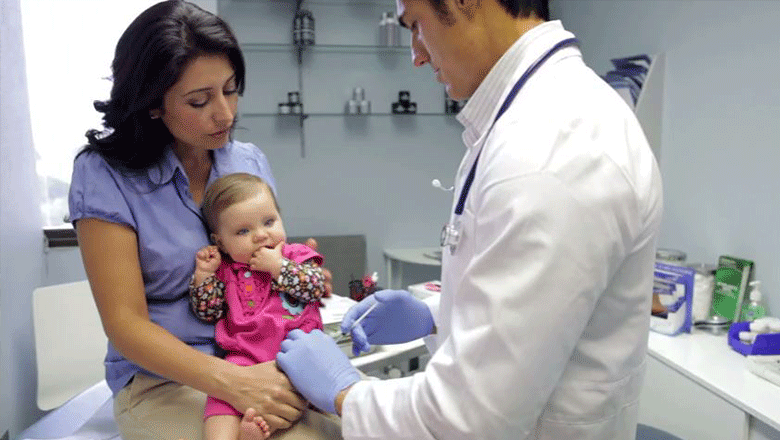Search
Research
Widening the lens for pandemic preparedness: children must be seen and heardThe Australian and New Zealand Paediatric Infectious Diseases (ANZPID) Group of the Australasian Society for Infectious Diseases (ASID) calls for urgent consideration of the needs and voices of children in response to the COVID-19 pandemic, and in planning for future pandemics.
Research
How immunity shapes the long-term dynamics of influenza H3N2Since its emergence in 1968, influenza A H3N2 has caused yearly epidemics in temperate regions. While infection confers immunity against antigenically similar strains, new antigenically distinct strains that evade existing immunity regularly emerge ('antigenic drift'). Immunity at the individual level is complex, depending on an individual's lifetime infection history.
Research
Haemophilus influenzae remains the predominant otitis media pathogen in Australian children undergoing ventilation tube insertion in the PCV13 eraUnderstanding patterns of bacterial carriage and otitis media (OM) microbiology is crucial for assessing vaccine impact and informing policy. The microbiology of OM can vary with geography, time, and interventions like pneumococcal conjugate vaccines (PCVs). We evaluated the microbiology of nasopharyngeal and middle ear effusions in children living in Western Australia, 11 years following the introduction of PCV13.
Research
Effectiveness of 2023 southern hemisphere influenza vaccines against severe influenza-associated illness: pooled estimates from eight countries using the test-negative designAnnual estimates of seasonal influenza vaccine effectiveness can guide global risk communication and vaccination strategies to mitigate influenza-associated illness. We aimed to evaluate vaccine effectiveness in countries using the 2023 southern hemisphere influenza vaccine formulation.
Research
Non-specific benefit of seasonal influenza vaccine on respiratory syncytial virus-hospitalisations in children: An instrumental variable approach using population-based dataSeasonal influenza vaccine is effective against influenza hospitalisations, but little is known about non-specific effects of the vaccine on other respiratory pathogens with similar seasonal patterns. We aimed to assess the causal impact of seasonal influenza vaccine on laboratory-confirmed hospitalisations for respiratory syncytial virus (RSV) in children using an instrumental variable strategy.
Research
Influenza and pertussis vaccine coverage in pregnancy in Australia, 2016-2021Vaccination in pregnancy is the best strategy to reduce complications from influenza or pertussis infection in infants who are too young to be protected directly from vaccination. Pregnant women are also at risk of influenza complications preventable through antenatal vaccination. Both vaccines are funded under the National Immunisation Program for pregnant women in Australia, but coverage is not routinely reported nationally.
Research
Parental awareness and attitudes towards prevention of respiratory syncytial virus in infants and young children in AustraliaTo assess parental awareness of respiratory syncytial virus (RSV) and the level of acceptance of future RSV prevention strategies. A cross-sectional online survey was implemented targeting "future" and "current" parents of children aged ≤5 years in Australia.
Research
Clinician perceptions of research priorities for the management of noncritically ill patients admitted to hospital with SARS-CoV-2 infectionThe changing phenotype of coronarvirus disease 2019 (COVID-19) may quickly render guideline-recommended interventions obsolete. We developed a 40-question clinician survey in consultation with the Australasian COVID-19 Trial site investigators. The survey was designed to assess clinician perceptions of the current treatment strategies and future research priorities in the management of non-critically ill patients admitted to hospital with SARS-CoV-2 infection.
Research
Influenza vaccine effectiveness and uptake in children at risk of severe diseaseParticipation in the preschool influenza vaccination program remains low with parents unconvinced of the benefits and safety of influenza vaccine

News & Events
Video: Flu vaccine Q&AIt's that time of year again... Flu vaccine time! Watch Dr Chris Blyth answer commonly asked questions in the video below.
